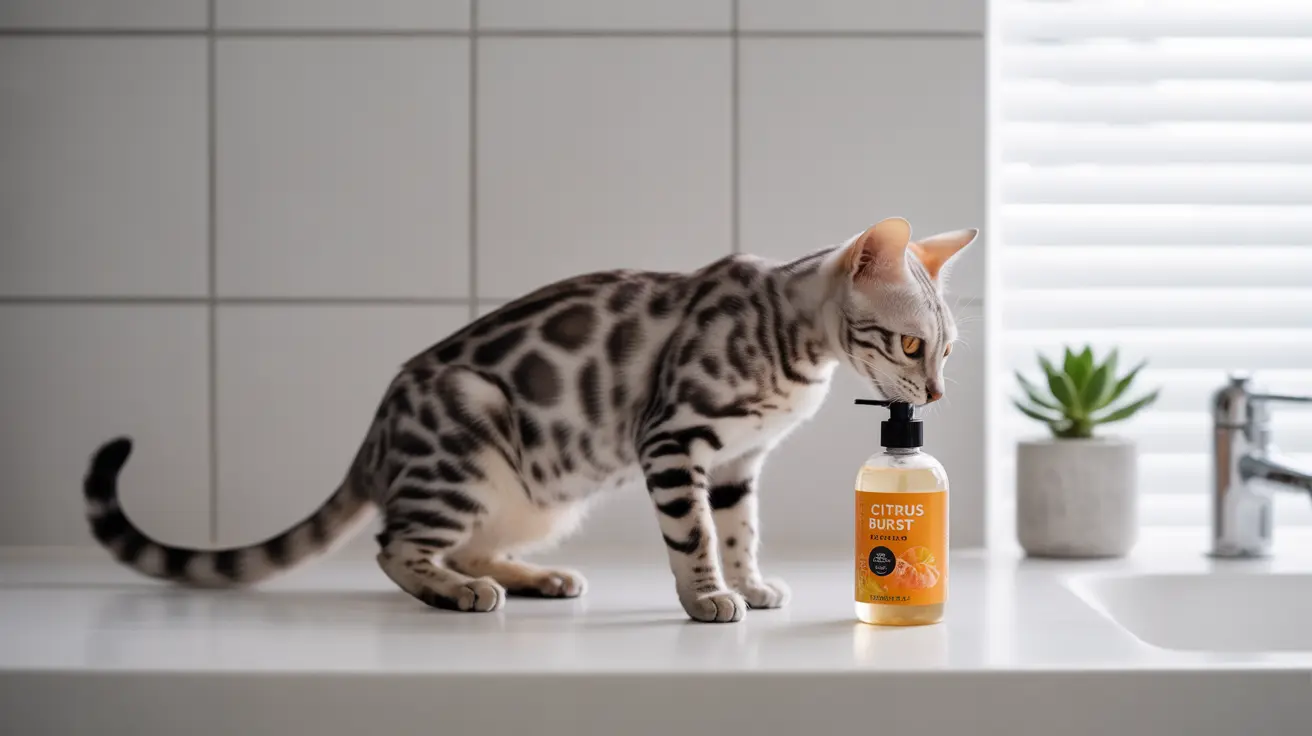If you've ever wondered about the safety of hand soap around your feline friend, you're not alone. Many cat owners are concerned about the potential risks of common household products, including hand soap. Understanding the dangers and knowing how to protect your cat from harmful exposure is crucial for responsible pet ownership.
In this comprehensive guide, we'll explore the risks associated with hand soap exposure in cats, identify dangerous ingredients, and provide clear guidance on what to do if your cat encounters these products. We'll also share safe alternatives and preventive measures to keep your furry friend healthy.
Understanding the Dangers of Hand Soap for Cats
Hand soaps contain various chemicals that can be harmful to cats, particularly because of their unique physiology and grooming habits. Cats are fastidious groomers, meaning they're likely to ingest any substance that comes into contact with their fur or paws.
Common harmful ingredients in hand soaps include surfactants, fragrances, essential oils, and preservatives. These compounds can cause various adverse reactions, from mild skin irritation to severe systemic toxicity.
Common Toxic Ingredients in Hand Soaps
Surfactants and Detergents
Sodium lauryl sulfate and other surfactants can cause gastrointestinal upset and chemical burns in cats. These ingredients are particularly dangerous because they can create severe irritation in the mouth and digestive tract if ingested.
Essential Oils and Fragrances
Many hand soaps contain essential oils like tea tree, lavender, or eucalyptus. Cats lack the necessary enzymes to process these oils effectively, making them particularly vulnerable to essential oil toxicity.
Signs of Soap Toxicity in Cats
Recognizing the symptoms of soap exposure or poisoning is crucial for quick intervention. Watch for these warning signs:
- Excessive drooling
- Vomiting or diarrhea
- Pawing at the mouth
- Skin irritation or redness
- Lethargy or weakness
- Difficulty breathing
- Loss of appetite
Safe Cleaning Alternatives for Cats
Instead of using hand soap on your cat, consider these safer alternatives:
- Cat-specific shampoos
- Pet-safe wet wipes
- Warm water for minor cleaning
- Veterinarian-approved grooming products
Prevention and Safety Measures
Taking proactive steps to protect your cat from hand soap exposure is essential:
- Store all soaps and cleaning products in secure cabinets
- Clean up soap spills immediately
- Use pet-safe hand sanitizers when handling your cat
- Keep cats away from sinks and bathroom counters
- Rinse hands thoroughly before petting your cat
Emergency Response to Soap Exposure
If your cat comes into contact with hand soap:
- Rinse the affected area thoroughly with clean water
- Pat dry with a clean towel
- Monitor for adverse reactions
- Contact your veterinarian if symptoms develop
Frequently Asked Questions
Is it safe to use regular hand soap to clean my cat?
No, regular hand soap is not safe for cleaning cats. The chemicals and fragrances can cause skin irritation, chemical burns, and serious health issues if ingested. Always use pet-specific products designed for feline grooming.
What are the risks if my cat licks hand soap off their fur or paws?
If a cat licks hand soap, they may experience drooling, vomiting, chemical burns in the mouth, gastrointestinal upset, and potentially more severe symptoms like difficulty breathing or lethargy. Immediate veterinary attention may be necessary.
Which ingredients in hand soap are harmful or toxic to cats?
Harmful ingredients include surfactants (like sodium lauryl sulfate), essential oils, artificial fragrances, preservatives, and antibacterial agents. These can cause various adverse reactions ranging from mild irritation to severe toxicity.
What symptoms should I watch for if my cat ingests or is exposed to hand soap?
Monitor for excessive drooling, vomiting, diarrhea, pawing at the mouth, skin irritation, lethargy, difficulty breathing, and loss of appetite. If any of these symptoms occur, contact your veterinarian immediately.
What are the safest alternatives to hand soap for cleaning my cat?
The safest options include cat-specific shampoos, pet-safe grooming wipes, or simply warm water for minor cleaning. Always use products specifically formulated and approved for use on cats.
Remember, when it comes to your cat's health and safety, it's always better to err on the side of caution. If you're ever unsure about a product's safety, consult with your veterinarian for professional guidance.






